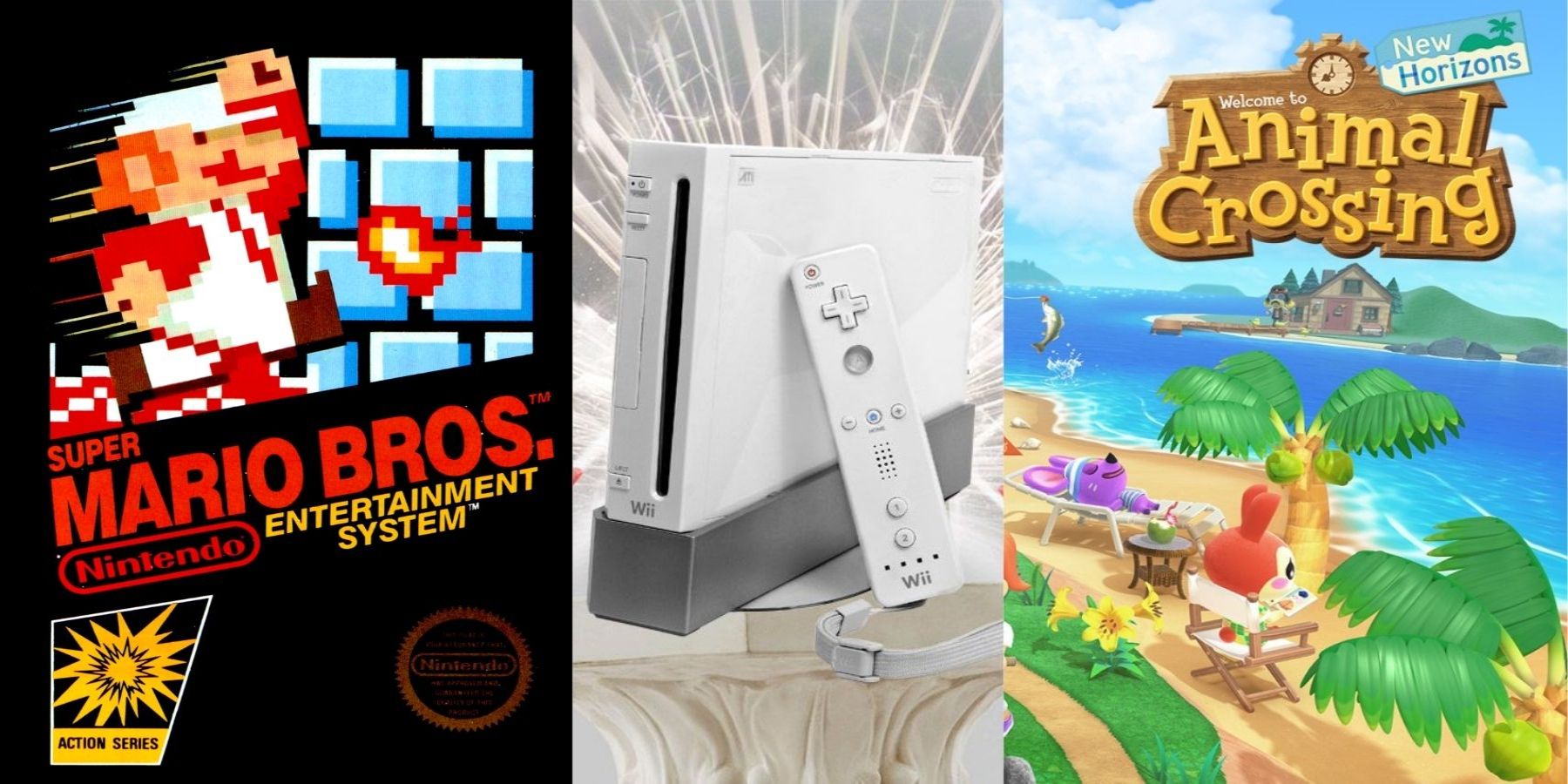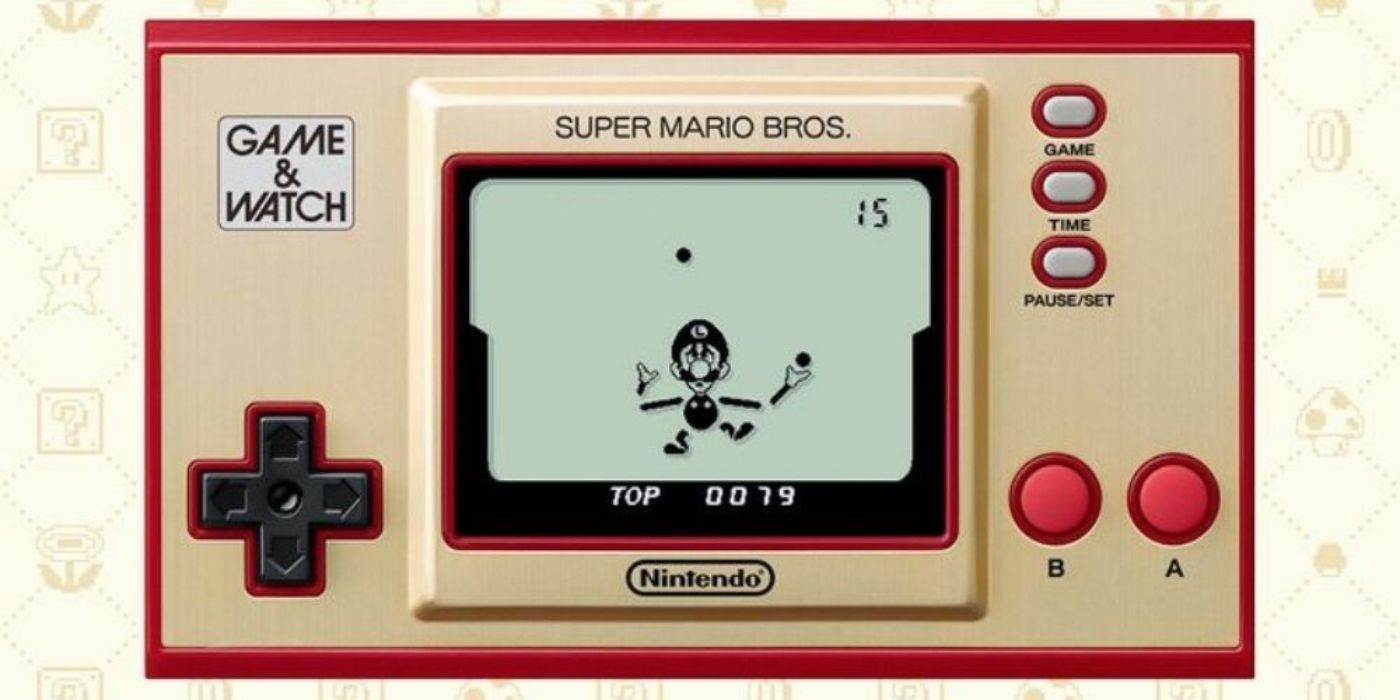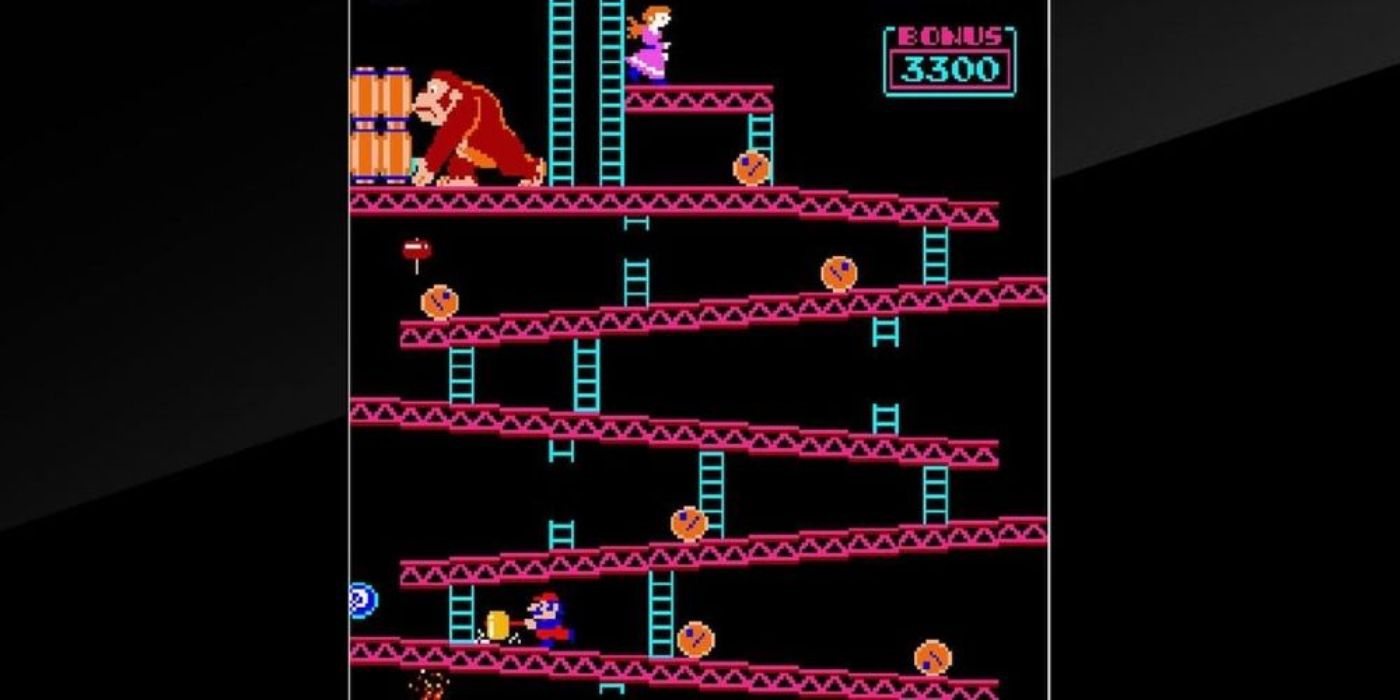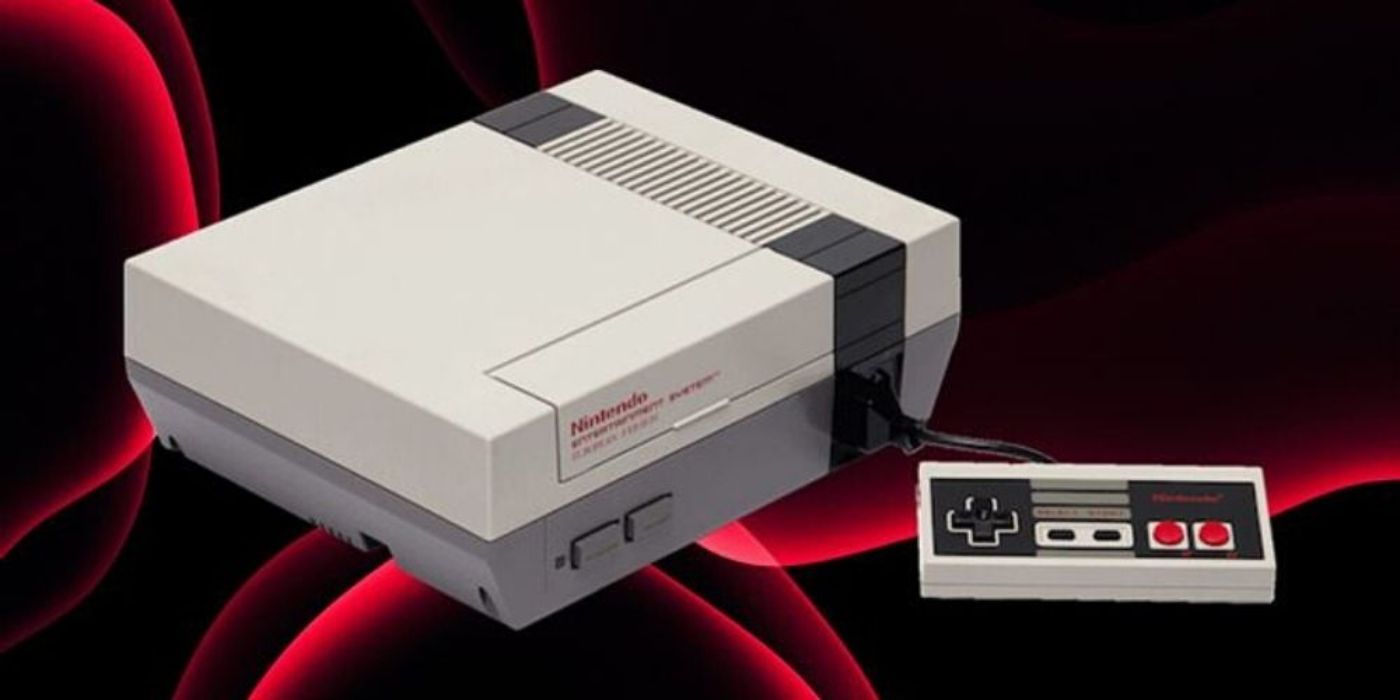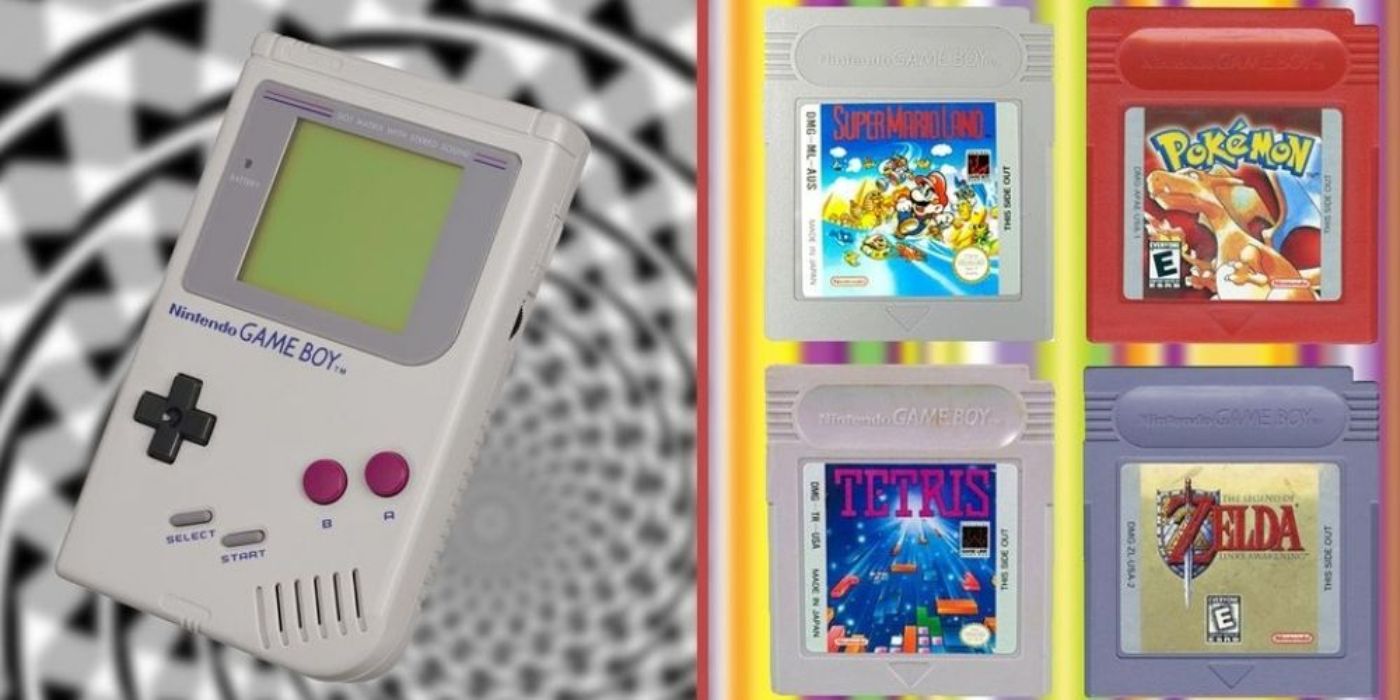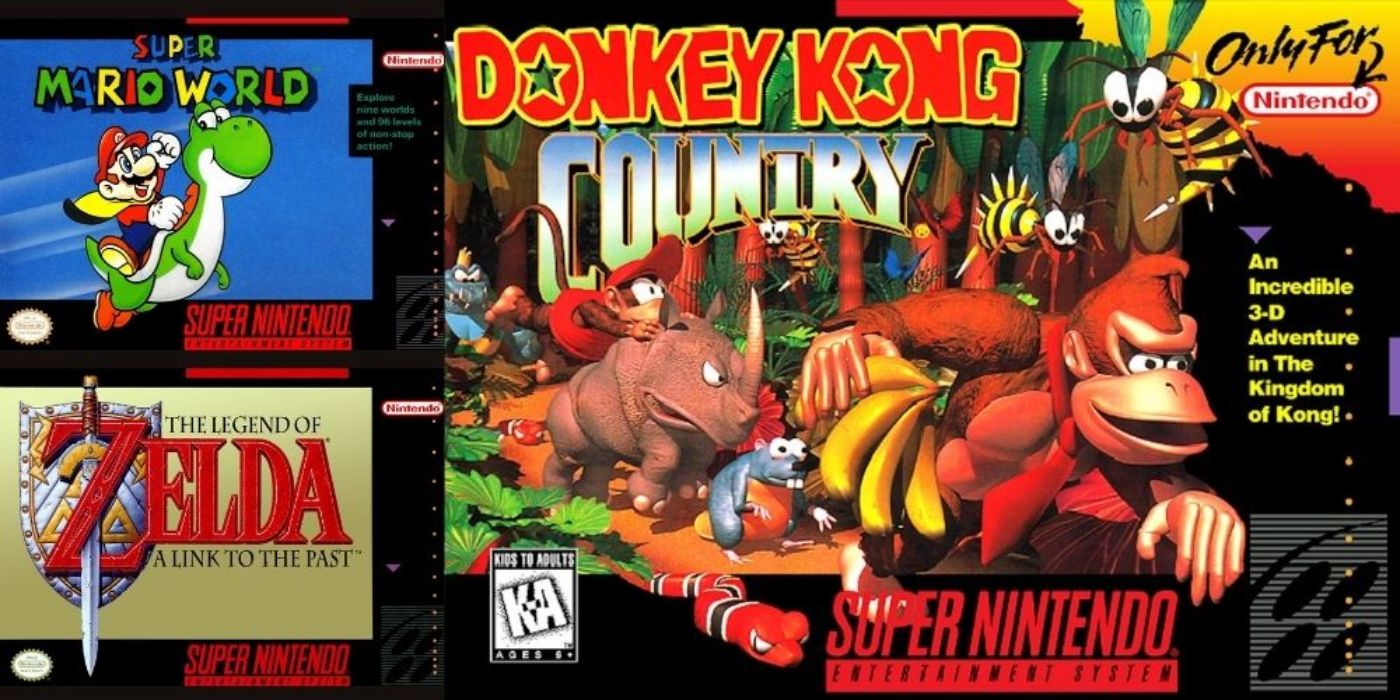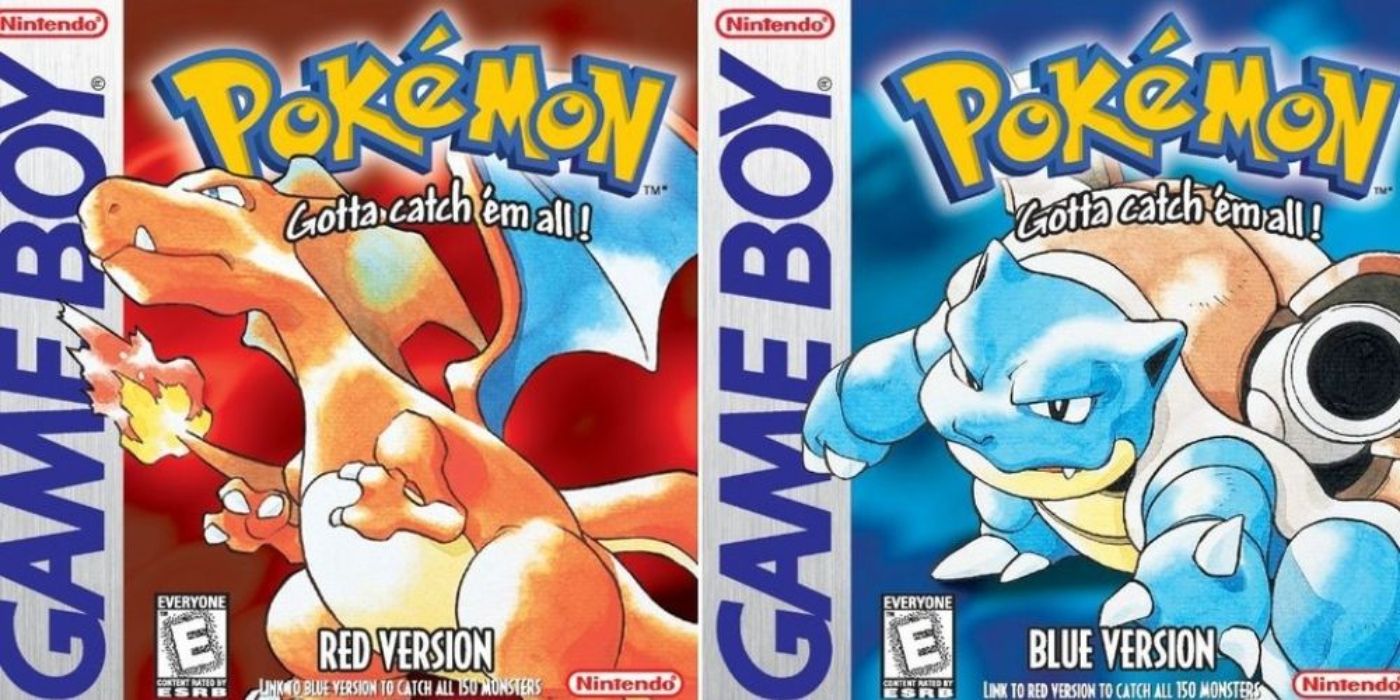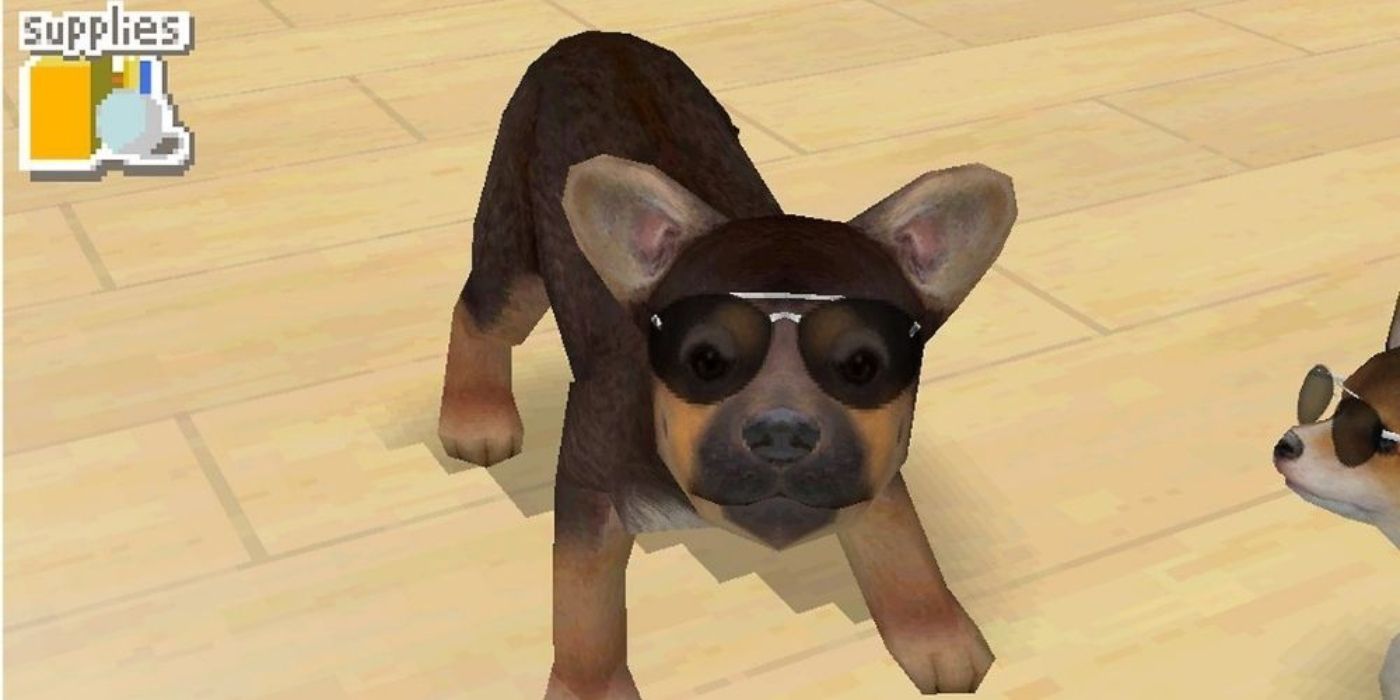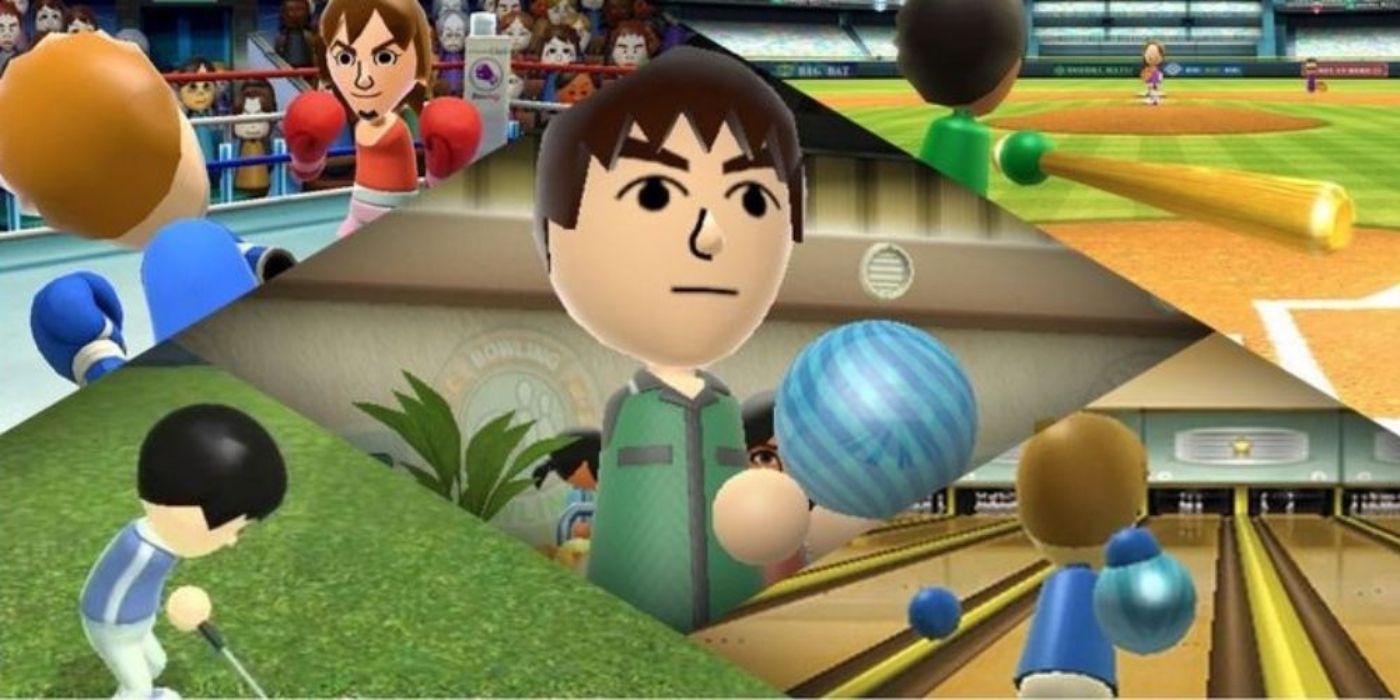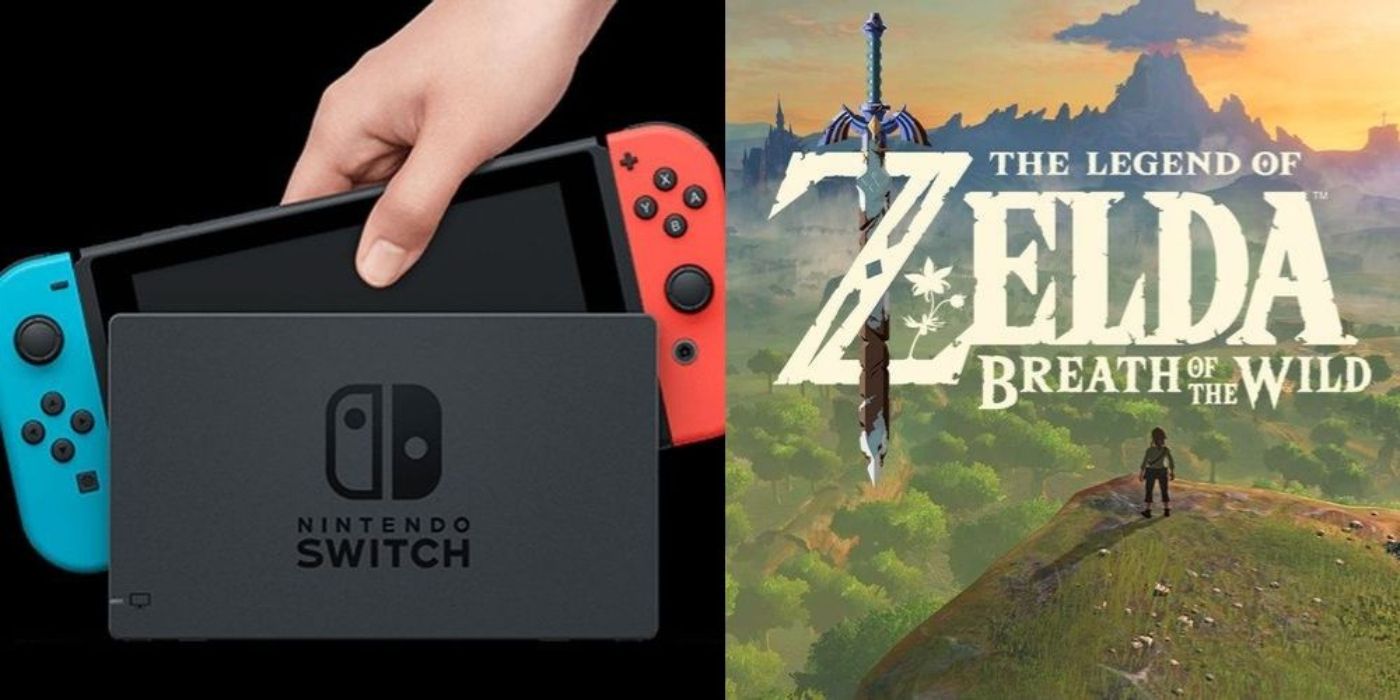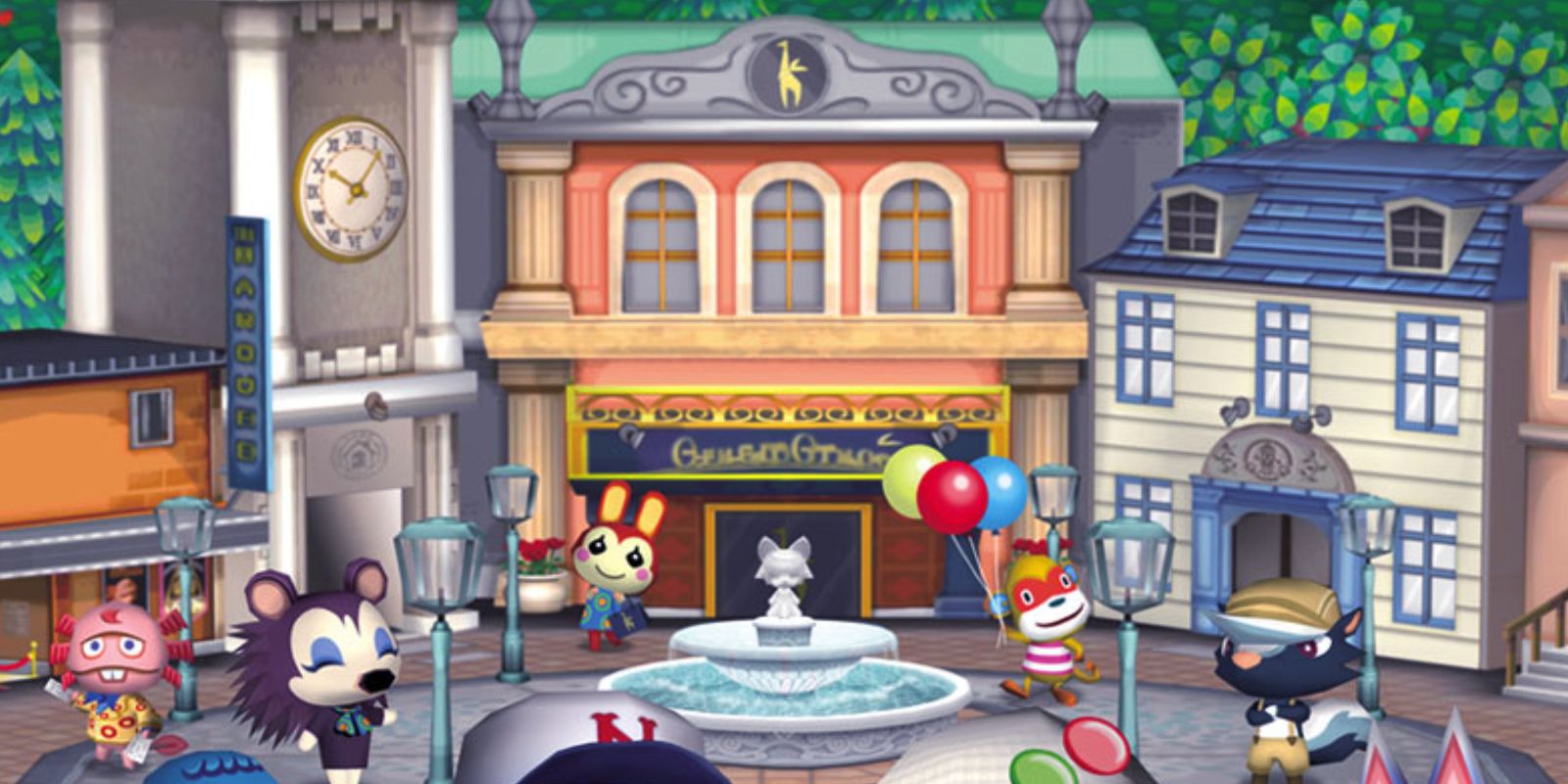Nintendo has created some of the most recognizable characters in video games but many people probably don't know that the company has been around for over 100 years. Nintendo's origins date back to 1889 when founder Fusajiro Yamauchi began designing and selling Hanafuda playing cards, a decorative Japanese card game.
Since those humble origins in tabletop gaming, Nintendo has changed dramatically. In 1970, they entered the electronic gaming arcade cabinet business. By 1980, the modern incarnation of Nintendo began taking shape and would soon grow into the most successful video game company in the industry.
1980 - The Game and Watch Is Nintendo's First Video Game Success
The Game and Watch was Nintendo's first massive hit in consumer gaming. Game and Watch products were handheld game systems that all featured one preloaded game title as well as a few other features, like a clock and alarm.
At the time of its release in 1980, the Game and Watch series was completely revolutionary and proved to be a huge success by selling millions of copies. Thanks to the rise in popularity of retro gaming, Nintendo is re-releasing a limited edition Legend of Zelda Game and Watch this holiday season.
1981 - Donkey Kong And Mario Are Introduced
1981 was an important year for Nintendo. The company achieved a massive amount of success both critically and commercially with the release of its arcade game, Donkey Kong. The game is notable for introducing the world to Nintendo's most famous mascots: Donkey Kong and Mario.
In Donkey Kong, Mario (then called "Jumpman") must jump over barrels thrown by Donkey Kong to save Pauline, who is being held captive at the top of the screen. Donkey Kong was a massive financial success for the company and helped solidify Nintendo as one of the most prominent names in the industry.
1985 - The NES Is Released In North America
Nintendo's first major home console was known as the Family Computer (or "Famicom") in Japan and was released in 1983. However, due to the catastrophic gaming crash of '83, the system wasn't released in North America until 1985. In America, the system's name changed to the Nintendo Entertainment System (NES) and was released around the same time as Super Mario Bros., which would become the best-selling NES game of all time.
The new console and the revolutionary Mario platformer took America by storm. Not only did Nintendo singlehandedly reignite the American gaming market with the NES, but the company quickly discovered that North America would be its biggest market and would be the key to the company's success. The NES went on to be one of the bestselling games consoles of all time.
1989 - The Game Boy Revolutionizes Handheld Gaming
With the gaming industry now surging to an all-time high, Nintendo returned to the world of handheld consoles with the Game Boy. Unlike the Game and Watch, the Game Boy could have cartridges inserted into it, allowing gamers to play various titles, no matter where they were: in the car, at the airport, or even on lunch break at work.
The Game Boy turned out to be a massive hit, launching a decades-long series of handheld consoles and eventually inspiring Nintendo to invent the groundbreaking Switch console, which would allow the company to capitalize on the at-home and handheld market in one gaming system.
1991 - The SNES Keeps Nintendo Competitive
At the end of 1990, the Super Famicom was released in Japan, and a year later it was released in America as the Super Nintendo (SNES). The console improved on the original by upgrading from 8-bits to 16-bits, having cartridges that could hold more complex games, and had faster processing speeds. This meant more improved graphics and sound, allowing developers to make more complex games like The Legend of Zelda: A Link to the Past.
The SNES proved to live up to the hype, launching many of Nintendo's most beloved franchises like Mario Kart and Star Fox. One of the console's biggest wins was the release of Donkey Kong Country in 1994. It was a late-in-life success for the 16-bit system, keeping the SNES relevant into the late 90s when the 32-bit video games wars were heating up.
1996 - The Year That Changed Everything
1996 is easily the most important year in Nintendo's history. The N64 was released in both Japan and North America, along with the launch title, Super Mario 64, which is consistently ranked as one of the best video games ever. In the handheld market, the Game Boy Pocket (a more compact version of the popular Game Boy) was released, along with a new video game called Pokémon. Since then, Pokémon has become the third best-selling game franchise in history.
The late 1990s was one of the most cutthroat eras in gaming history, and console-makers like NEC, Atari, and 3DO failed to succeed in the fierce competition. Sony took over the video game marketplace with the first PlayStation, leaving little room for established companies like Sega to survive. Nintendo, however, stayed relevant with multiple gaming systems appealing to an all-ages demographic and a cultural sensation like Pokémon that was exclusive to Nintendo's platforms.
2005 - Nintendogs Is Unleashed
Nintendo's fortunes ebb and flow; some consoles are massive hits while others don't perform all that well. In the 2000s, Nintendo failed to successfully launch and sustain the GameCube, which lagged behind both Sony's PS2 and Microsft's Xbox more profitable video game systems. However, Nintendo scored a critical and commercial success with their new handheld console, the Nintendo DS.
In 2005, an unsuspecting phenomenon was unleashed on the handheld device with Nintendogs. The pet simulation game used many of the DS's revolutionary features like the touchscreen, microphone, and multiplayer connectivity. Nintendogs became a smash hit and gamers even began organizing in-person gatherings to let their dogs play with each other. In total, the game sold almost 24 million copies.
2006 - The Wii Puts Nintendo Back On Top
Nintendo hadn't had the top-selling game console since the 16-bit era with their Super Nintendo. That all changed with the Wii. The console was revolutionary with its motion-sensor controllers and a large library of family-friendly multiplayer titles and fitness games.
After the Wii's release, critics and players alike agreed that games like Wii Sports and the motion-steering of Mario Kart Wii were incredibly fun and entertaining. In fact, the Wii created a surge of motion-sensor gaming as Sony and Microsoft were forced to catch up to the technology. Xbox ended up releasing the Kinect and PlayStation launched the PlayStation Move. In the 7th generation of consoles, Nintendo finally reigned supreme over Sony and Microsoft with the Wii.
2017 - The Switch And Zelda Take Over The World
After the Wii, Nintendo launched its worst-selling console to date, the Wii U, which had abysmal sales numbers. Some started wondering if Nintendo had lost their magic or perhaps wasn't able to keep up with the technological advancements of Sony and Microsoft.
But in 2017, Nintendo achieved another significant commercial success with yet another innovative console, the Switch. The dual handheld/dockable system proved to be versatile, fun, and perfect for gamers of all ages. Better yet, the Switch's AAA launch title, The Legend of Zelda: Breath of the Wild was hailed and praised by critics and fans alike for its beautiful open-world and play mechanics. 2017 was another pivotal year for Nintendo that showed the company is never out of great ideas to sustain their business.
2020 - The Pandemic And New Horizons
When Nintendo was preparing for the release of Animal Crossing: New Horizons, they had no idea that a deadly pandemic would force a majority of the population to isolate themselves in their homes for months. With its childlike characters and low-stakes gameplay, New Horizons was the ideal avenue for gamers to escape their difficult COVID-19 reality.
New Horizons offered a space for players to be creative, peaceful, and even social during a time when everything felt like it was falling apart. In fact, the game was such a powerful force for people during lockdown that historians are working on archiving the history of New Horizons during the early months of COVID. For many people, New Horizons was a way to keep living, providing the game an immense level of popularity. Animals Crossing: New Horizons became one of Nintendo's biggest video game successes, selling 33 million copies in over a year and continues to sell more in the present day.

